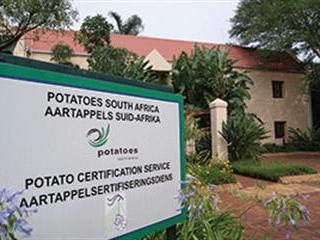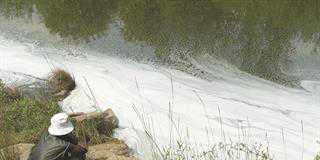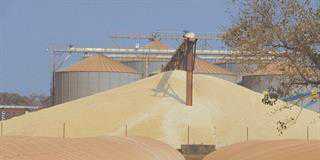
What do you see as PSA’s top priorities?
One of my major goals is to reposition the potato industry in South Africa so that it makes a meaningful contribution to food security and rural development. Potatoes are a useful rotation crop in many areas and the potato is a beneficial component of a well-balanced diet. I would like to see potato growing as an agro-industry of preference, in which government and non-government organisations partner the local potato industry to work towards the goals of food security and rural development – and in particular transformation through smallholder farmer development. We need to build partnerships and alliance networks within the industry and outside the sector in other agricultural spheres. What is crucial is that we communicate our efforts, our success stories and our commitment so that everyone is on the same page. 
What in-house shifts can be expected at PSA?
We aim to improve information flow and intensify knowledge management services; to expand and build research and development across the value chain; and to build capacity and programmes pertaining to market information and product promotion. PSA plans to reposition its business services so that provincial PSA offices can address the specific needs of producers and contribute to the transformation process through expertise and skills in potato farming.
What do you see as the challenges of 2013?
One of our biggest challenges will be to grow demand. There is no point in growing supply without developing demand.
We have a number of programmes in place projected to grow consumption in LSM (living standards measure) 4 to 7. This includes a presence at shows, festivals and sporting programmes such as the Comrades Marathon. We also have foreign market development activities for export growth. Our focus is to increase consumer awareness of the benefits of eating potatoes as part of a healthy diet. In addition, we need to re-engineer and accelerate transformation activities which will include leveraging and building strategic partnerships.
What progress has been made with black farmer development?
Transformation and black farmer development in the potato industry is a priority. Black farmer development is not just about training farmers. Capacity and competency needs to be transferred so that potatoes can be sustainably farmed. Our regional offices and field staff can provide necessary support services but it is important that commercial farmers also provide mentorship.
Black farmers need a holistic, well-planned system that includes partnering with input suppliers, financiers, business analysts and government. Every farmer is seen as a potential commercial farmer. PSA‘s strategic plan is to have 50 black potato farmers farming sustainably by 2014. In our social development programme, we are engaging with a number of communities to plant potatoes. This industry has great potential as far as transformation and food security is concerned.
Have any commercial farmers stepped forward as mentors?
A number of farmers in the the Eastern Cape and KwaZulu-Natal have indicated their willingness to act as mentors to black farmers, and mentors have been identified in the Free State and Limpopo. Potato growing is a technical enterprise and a high risk operation. A disease, either above or below the ground, can destroy a crop in two or three days. It requires extremely good planning and sequencing of activities, as well as access to chemicals on short notice.
Have there been any developments in the control of cheap French fry imports from the EU?
The International Trade Administration Commission of South Africa (Itac) has initiated investigations into possible remediation.
Imports have the potential to jeopardise the ability of some of our processing plants to carry on with business. Imports over the last two years have ranged between 25 000t and 30 000t of frozen product which equates to close to 1 900 on-farm jobs and 1 300ha potatoes. There is definitely a risk of those jobs being lost or alternatively a halt in job creation if we do not stem the flow of cheap imports.
Where are our export markets?
Mainly African neighbours, such as Angola. Out of a total annual crop of about 2,2 million tons, we export in the region of 120 000t to 150 000t so there is plenty of room for export growth.
Is supply and demand in balance in SA?
The market reacts fairly quickly when there is a surplus, and prices drop to remove that surplus. There is significant volatility in the market, both upstream and downstream, which influences production decisions. Real potato prices have declined during the past three years. Has there been any move by producers to plant less to bring prices up?
There are currently about 54 000ha under potatoes and we could lose 5% of that in the next season, primarily because farmers are experiencing cost-price squeeze issues. As a result, in the coming season we might see prices move more or less sideways in real terms. At an average fresh produce market price for the producer of R26 to R30 per 10kg pocket (or R2,6 to R3 per kilogram), potatoes are good value for money compared to other higher-end protein sources.
Is the cost-price squeeze leading to attrition in the number of potato farmers?
There is some consolidation taking place. In 1992, there were about 2 000 potato farmers. In recent years, this figure has tended to vary between 650 and 700 farmers, with the estimate for 2012 at 680 farmers. During the last five years, plantings have moved between 52 000ha and 54 000ha, but production has expanded, pointing towards increased productivity.
Given the nature of the crop, farmers go in and out of the market relative to prices. The farmers who stay in the industry tend to be bigger farmers with a high level of specialisation and investment. They rely on economies of scale to stay in the business as potato farming is not only costly but capital intensive. Potato farming is not just about putting a potato in the ground. It has become a science.
Contact Potatoes SA on 012 349 1906 or visit www.potatoes.co.za













